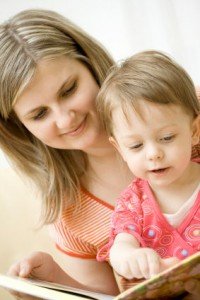Children below 3 years of age are likely to place anything that they can find in their mouths, including household poisons, medications and chemicals. These substances should be properly stored and out of reach.
Risk for poisoning
Poisoning due to household poisons usually occur among children below 5 years old. It is quite common among children aged 1-3 years old. Once you suspect that a child ingested something poisonous, you have to stay calm. Call the poison control for further advice.
Kitchen poisons
Various items in the kitchen that can considered as poisons include:
- Alcohol
- Kerosene
- Ammonia

Poisoning due to household poisons usually occur among children below 5 years old. - Cream cleaners
- Baby bottle cleaners
- Drain cleaners
- Bleaches and disinfectants
- Floor polish
- Matches
- Liquid cleaners such as those used for the floor
- Rat and insect poisons
- Oven cleaners
- Spray cleaners such as those used for the windows
Safety measures for household poisons
- Store chemicals, cleaners and medications in a child-safe locker at all times.
- Affix child-proof locks on cabinets.
- Store all chemicals and cleaning products away right after use.
- Chemicals, cleaners and medications should be left in their original containers.
- Properly dispose any products that are no longer used.
- Try to use products that are less dangerous such as using a combination of vinegar and bicarbonate of soda when cleaning surfaces.
- Purchase containers that are child-resistant.
- Look for a dishwashing powder or liquid in a container that could not be tampered by children. Remember that dishwashing in powder and liquid form have a corrosive nature. They can cause burns and extremely dangerous once ingested.
Medications
Medications have been the common cause of poisoning among young children. Oftentimes, poisoning occur if medications are left within reach.
- All medications must be stored out of reach and out of sight in a locked cupboard or cabinet.
- Place a child-proof lock on the medicine cabinet.
- All measuring cups and droppers used for medications must be stored separately and in a safe area.
- Carefully read the labels and follow the directions.
- Make sure that you are providing the right medication and dosage, especially at night. Using more than the recommended dose can be harmful.
- Discard any unwanted or expired medications.
Household poisons in the bathroom
There are also a number of household poisons found in the bathroom. These should be stored in a locked cabinet due to their dangerous nature.
- Bathroom cleaners
- Mouthwash
- Toilet cleaners
- Shampoos, conditioners and soaps
- Cosmetics
Quick Note / Disclaimer
The material posted on this page on household poisons is for learning and educational purposes only. To learn to recognize and manage individuals suspected of poisoning, register for a standard first aid course with Saskatoon First Aid.

